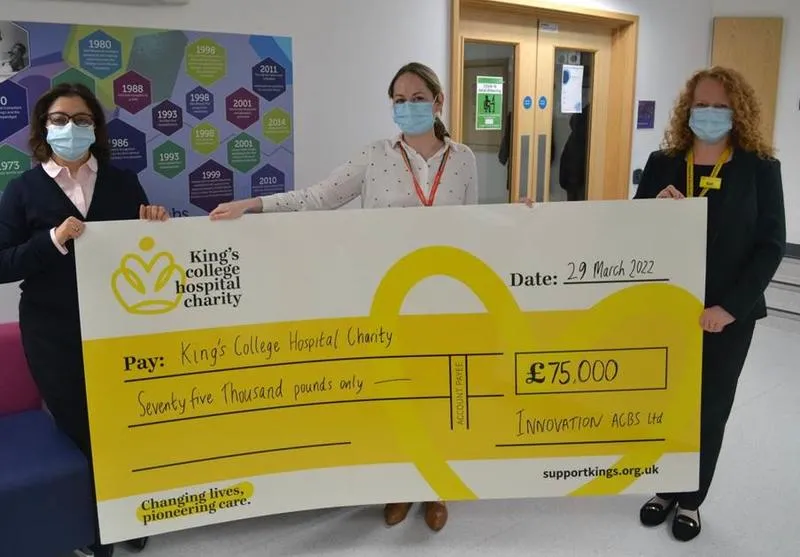
The donation is supporting work taking place in the world-renowned Alex Mowat Paediatric Research Laboratories, where clinicians and researchers are developing a ground-breaking technique to implant liver cells (hepatocytes) to function like a temporary liver, enabling the child’s damaged organ to recover.
The pioneering treatment, which has already successfully restored liver function in young children with acute liver failure, is the focus of a clinical trial to establish whether it can become standard treatment for adults as well as children.
Innovation’s donation will also support the team’s work to use naturally occurring molecules to improve the quality, function and activity of hepatocytes for transplantation, improving how they are cryopreserved and banked so they are readily available to save patients’ lives.
Antoinette Mitry, Managing Director, Innovation Air Conditioning and Building Services Ltd, said: “I got to know about the fascinating liver research at King’s College Hospital that led to the development of novel hepatocyte transplantation techniques for treatment of paediatric patients with metabolic liver diseases, and acute liver failure. This pioneering work has saved and continues to save the lives of sick and dying children. I am delighted that our company could contribute to the support of King’s scientists with their ‘from bench-to-bedside’ amazing research.”
Dr Jessica Nulty, Senior Liver Cell Scientist, Hepatocyte Biology & Transplantation Group, said: “We would like to extend a huge thank you to Innovation ACBS Ltd for this generous donation. This funding will help the Mowat Labs to continue our research into finding novel cell therapies for the treatment of paediatric liver disease and will further support our mission to translate these discoveries to the clinic to improve the care of our patients here at King’s Paediatric Liver Centre.”
Professor Anil Dhawan, leader of King’s Hepatocyte Biology & Transplantation Group, said: “King’s is the only hospital in the world advancing this game-changing treatment for children with acute liver failure using hepatocyte microbeads.
"Through this donation we would be able to carry out further research aiming at enhancing the hepatocyte function and activity, and optimising protocols for cryopreservation of these cells using naturally occurring molecules. These high quality hepatocytes will be transplanted in very sick and dying children with acute liver failure.”
The team will be recruiting patients for the next phase of the clinical trial, funded by the Medical Research Council. It is hoped that further commercial support will then help the team to upscale the technology to save the lives of many more patients.
Gail Scott Spicer, Chief Executive, King’s College Hospital Charity, said: “Every day King’s staff work wonders not only to save and enhance lives now, but to drive research and innovation that keeps care advancing.